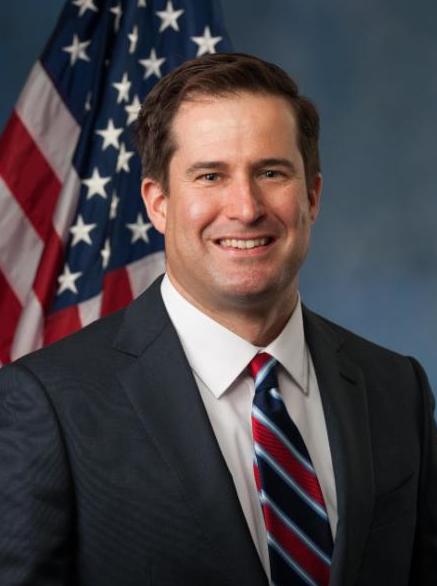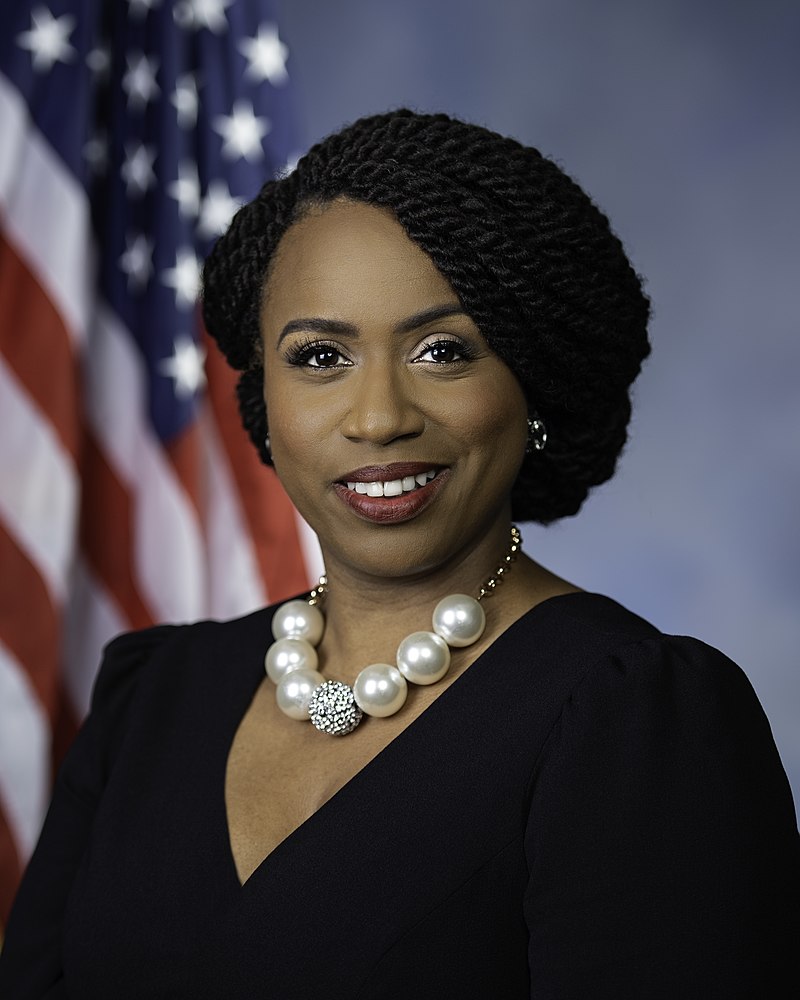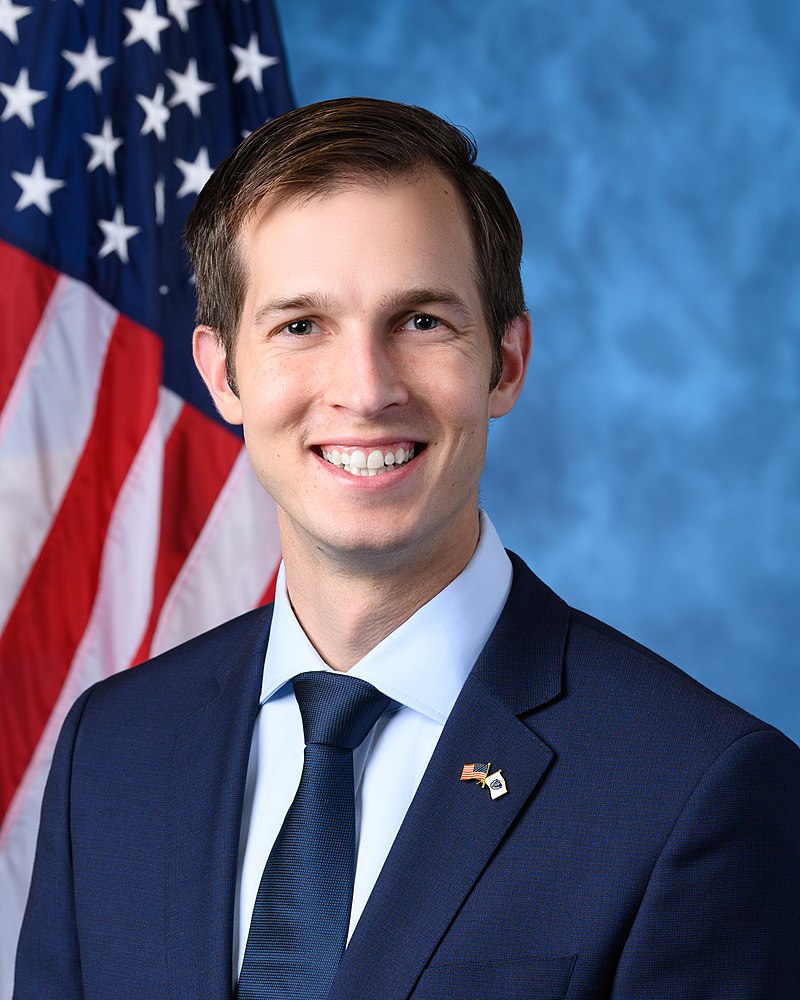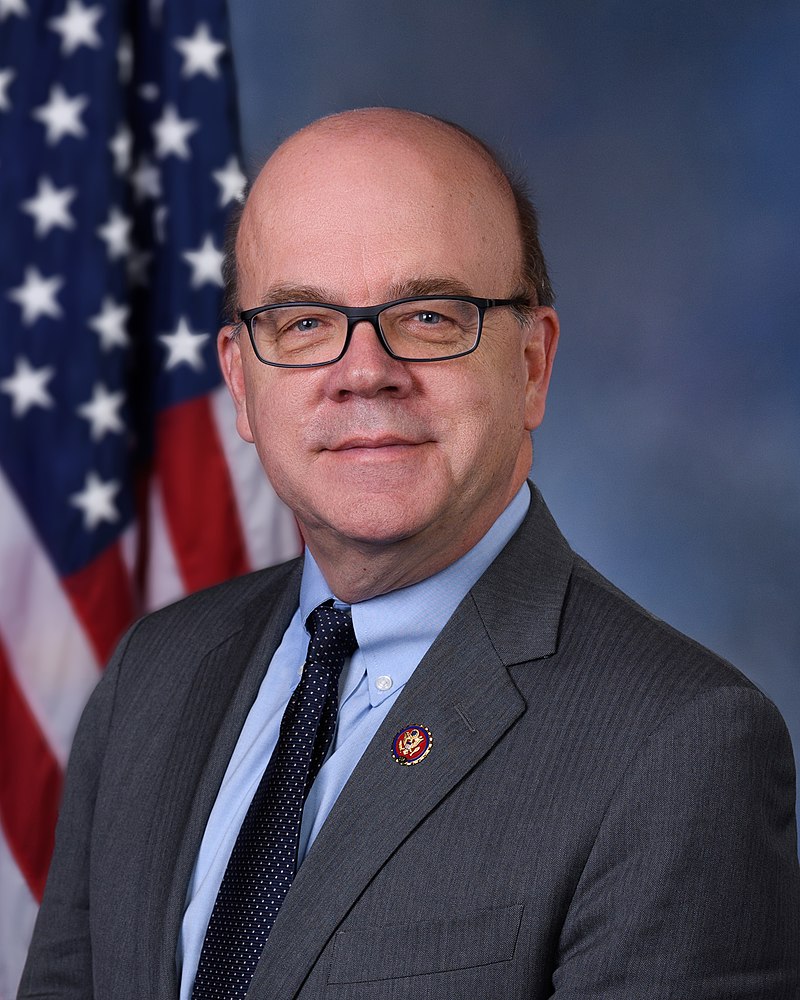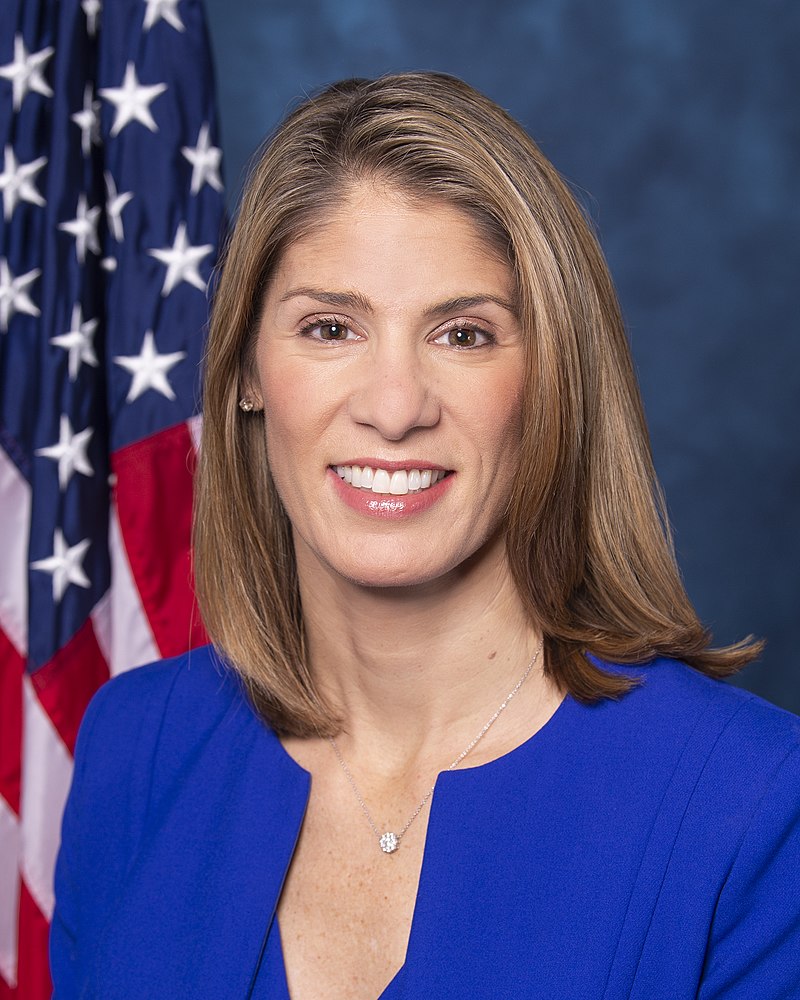Seth Moulton is a veteran, a father, and a Democrat who represents a new generation of leaders in Washington.
Inspired to public service by his most important mentor in life, the great Black Minister Rev Peter Gomes, he joined the Marines in 2001, days after his college graduation and a few months before the attacks on 9/11. Leading a frontline infantry platoon in the first Marine company to enter Baghdad, he later worked to establish a free and independent Iraqi media, and served as a liaison to senior Iraqi military and political leaders for General Petraeus. While he was an outspoken critic of the Iraq War, he proudly served four tours, sharing the view of many of our servicemembers that he didn’t want anyone to go in his place.
After returning home from Iraq, Seth used the G.I. Bill to earn joint degrees in business and public policy, and then became the managing director of Texas Central, building America’s first high-speed rail line. But it wasn’t long before he was called to serve once again, this time in his home district in Massachusetts.
Seth challenged the establishment with a platform of bringing a new generation of leadership to Washington, willing to fight for progressive values yet not afraid of bipartisanship.
Named the Most Effective Freshman Democrat in his first term, Seth has consistently delivered results in a divided Washington. He is the only Member of Congress to earn two Democracy Awards from the Congressional Management Foundation, one in 2018 for Transparency and a second in 2020 for having the best constituent services in all of Congress. His legislation has delivered Faster Care for Veterans, designated a three-digit National Suicide Hotline, modernized Government Travel, and delivered on ALS Diability Insurance. His American High-Speed Rail Act is the most ambitious and forward-thinking infrastructure package before Congress today, and he recently wrote the G.I. Bill Repair Act to finally restore long-denied benefits to Black veterans of World War II.
Today, Seth sits on three committees. As a member of the Budget Committee, he advocates for a new economic agenda that will make a difference for American families. As a member of the House Armed Services Committee, he co-chaired the Future of Defense Task Force, which recently issued a first-of-its-kind bipartisan report on the hard choices and smart investments we must make to ensure our national security for the decades ahead. And he is the Congressional leader on high-speed rail and other next-generation infrastructure on the Transportation and Infrastructure Committee.
Back home in Massachusetts, Seth works tirelessly to support local small businesses and veterans, advance civil rights, and grow the economy. He created a model intergovernmental task force that has spurred over $1 billion in federal economic development funding for the city of Lynn, and he forged a unique partnership between fishermen and scientists to ensure the long-term sustainability of fish stocks and the local fishing economy.
Most importantly, Seth is the proud father of two girls, Emmy and Caroline. His amazing wife Liz is a sports industry executive, and they live in Salem, Massachusetts.
Keeping Our Country Safe and Secure
In the Marines, our division’s motto was “no better friend, no worse enemy.” That means your allies trust you, and your enemies trust your resolve. Our country should be no different. But the Trump administration turned its back on our friends and cozied up to our adversaries. His erratic foreign policy weakened the country, left our allies in the lurch, and emboldened our adversaries across the globe. That needs to change.
When it comes to national security, our solution has too often been only “more:” more ships, more troops, more spending. But instead of always fighting with more, we have to fight smarter. No more building outdated, costly weapons systems—we need to make sure our troops have the best technology to defeat our adversaries and support our allies. That means dramatically increasing our investment in autonomous, hypersonic, and cyber weapons—and continuing to invest in basic scientific research, education, and immigration.
But to restore strong American leadership, we need to use all the tools at our disposal—from foreign aid to new alliances to diplomacy—not just the military. We should build new alliances, like a Pacific NATO, to counter the growing threats of Russia and China abroad. And we need to take care of those who take care of us, whether it’s an ally in the Paris Climate Accord or the veterans who fight our wars.
Our troops deserve it and our national security demands it.
Preventing Gun Violence
As a United States Marine, I carried an assault rifle in Iraq. It saved my life more than once. I’ve seen what assault rifles can do. Nobody in America needs to own an assault rifle. I also carried two grenades every day I was in Iraq, but we’ve made a decision in this country that our citizens don’t need to walk around carrying hand grenades. We need to do the same thing with assault weapons and other weapons of war. Nobody is allowed to drive a tank down the highway, or walk into a shopping mall with grenades—nobody should be allowed to have an assault weapon either.
It’s time for commonsense gun reform. We can start by passing an assault weapons ban and background checks, not letting people who are on a terrorist no fly list buy guns, and enforcing red flag laws.
Ensuring Health Care—and Mental Health Care—For All
Healthcare is a basic human right, not a privilege. All Americans deserve health insurance that’s affordable, that isn’t tied to a job, and that covers all pre-existing conditions—no matter who you are.
That’s why I support President Obama’s original plan to make private health insurance work better, alongside a public option. Competition is the cornerstone to Americans getting lower premiums, lower drug prices, and great care. We need to undertake drastic change to fix our healthcare system, and we need to give Americans the freedom to choose the plan that works best for them.
In addition, mental health should become a routine part of healthcare in our country. We all know someone who struggles with mental health or struggle with it ourselves. But all too often, we don’t talk about these issues or get help because of the stigma associated with them. That’s why I passed a bill to make 988 the national mental health crisis hotline.
It’s time to end the stigma around these issues and make sure everyone gets the support they need.
Creating an Economy that Works for Everyone
Our economy is changing fast, and we need to equip Americans with the tools they need to thrive in the new economy—not the old. That means investing in infrastructure, reimagining our education system, and rewriting the rules of our economy to build an America where hard work pays off.
We need to pass a Democratic Tax Reform that ensures everyone pays their fair share. That means at least:
- Reversing the Trump tax cuts and raising the rates for corporations and top earners.
- Taxing capital gains at the same rate as working Americans.
- Funding the IRS so that tax shelters and tax cheats are audited, not ordinary Americans.
We also need to create equal opportunity in this country by closing school funding gaps, so that the quality of education does not depend on your zip code, improving workforce development programs to put more Americans in good paying jobs, and making college affordable to revive the American Dream that has been out of reach for so many.
Supporting our Veterans
Our veterans sacrifice so much to take care of us overseas, so it’s our responsibility to ensure they are taken care of when they return home.
Veterans are at high risk of facing mental health challenges: 50% of veterans who struggle with post-traumatic stress (PTS) don’t get help, and 22 veterans or active-duty service members commit suicide every day.
My plan to make mental health check-ups as routine as a physical for active-duty military and veterans would:
- Require annual mental health check-ups just like annual physicals. Mindfulness training is preventative medicine as pioneered today by the special operations community and other elite units.
- In addition, require a mandatory counseling session for everyone returning from a combat deployment within two weeks of arriving home.
- Fill all mental health vacancies at the VA and adopt a more holistic approach to treatment, including alternative therapies like mindfulness, exercise, and cannabis. Fund an ad campaign for veterans’ families to recognize mental health symptoms.
Reforming our Immigration System
We need a path to citizenship for everyone in America. I’m proud to have cosponsored and voted for HR 6, the Dream and Promise Act, which would create a pathway to citizenship for Dreamers who are American in every way except on paper. It should be law.
We shouldn’t be cutting off foreign aid or closing the border or building a wall. We should be investing targeted foreign aid in the Northern Triangle, addressing the violence that’s driving people from their homes and to our borders.
When the president separated families and put kids in cages I was speaking out and fighting back. I led a delegation to the Mexican side of the border and met with deported veterans—a phrase that shouldn’t even exist.
Championing Equality for All Americans
There is systemic racism in our country, and one of the most important things I’ve learned over the last few months is how prevalent it is right here at home. That’s a difficult lesson to learn.
We’re still feeling the repercussions of the past, and we need to address them. We need to have a conversation in this country that should have happened decades ago. I am a co-sponsor of HR40, which would create a commission to examine reparations. I’ve also introduced the GI Bill Restoration Act, which seeks to right historical wrongs by extending housing and education GI benefits to certain direct descendants of Black WWII veterans, who were denied them.
I also believe we need to rethink the way we police in this country. We should be diverting funds from police departments to social services; from policing crime to preventing crime; for providing more mental health support to people in our communities before they get caught up in the criminal justice system.
Addressing the Climate Crisis
We’re facing two primary challenges in this country right now. The first is that our economy is changing faster than ever before, and Americans everywhere are being left behind. The second is climate change. That’s why we need a Green New Deal: because if we do it right, we can solve both problems at once.
The Green New Deal needs to be built around green jobs and clean energy, decarbonization and breakthrough technologies, and access to green energy for the developing world—and America should lead the way in winning this moral and economic opportunity. We can lead the world in green tech and green jobs, and we should set the standards for other countries to follow.
The New Deal paved the way for a strong economy and American leadership in the last century. Let’s shape the Green New Deal to help America lead this one.
Building Infrastructure of the Future
We can rebuild our economy by rebuilding our country. That starts with connecting every house in America to affordable, high-speed internet. And it means not just repairing our roads, bridges, and water pipes but building next-generation transportation, like high-speed rail, because everyone should have access to good jobs in their region and a chance to make it home after work in time for dinner.
Congressional Record
